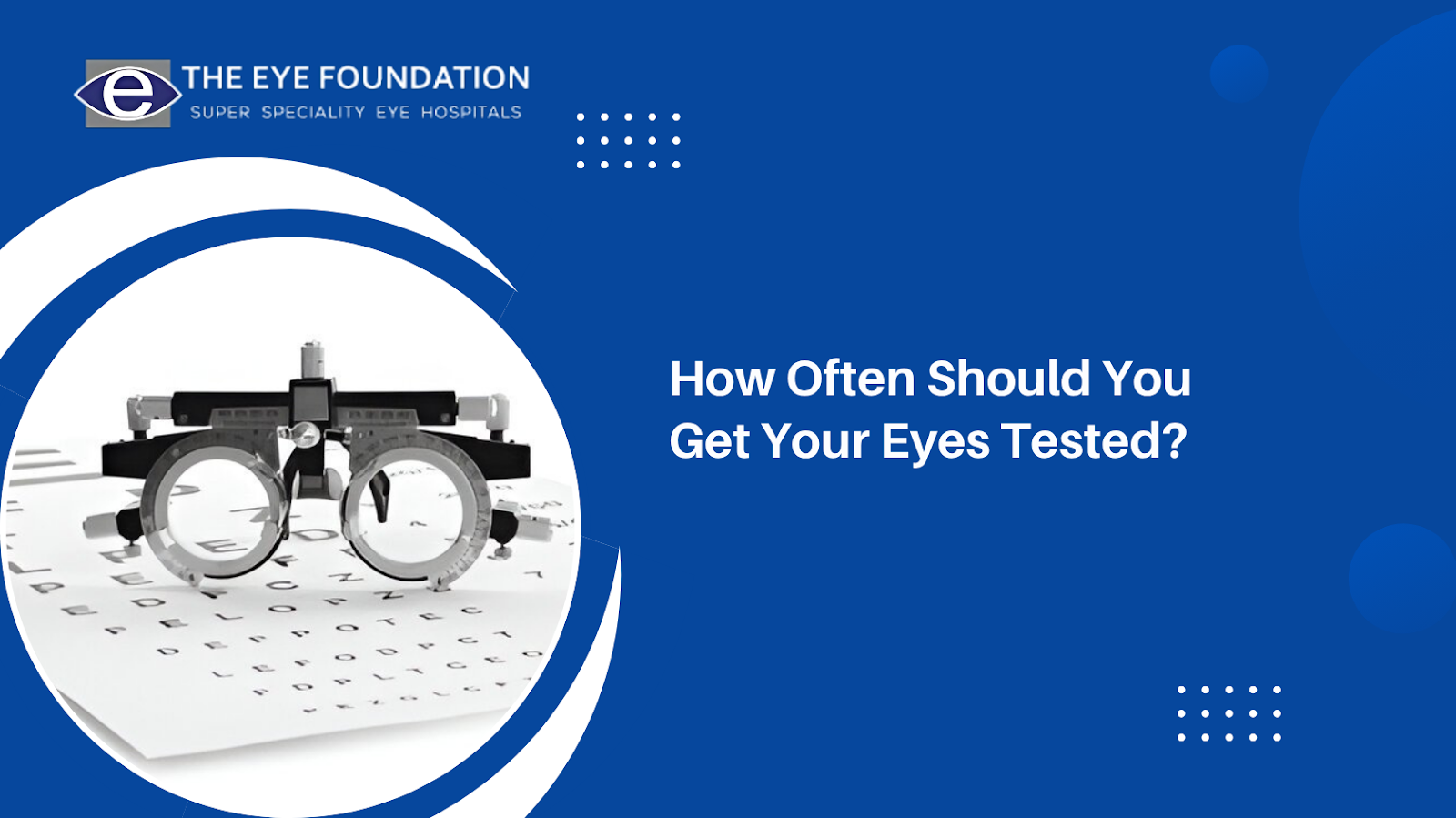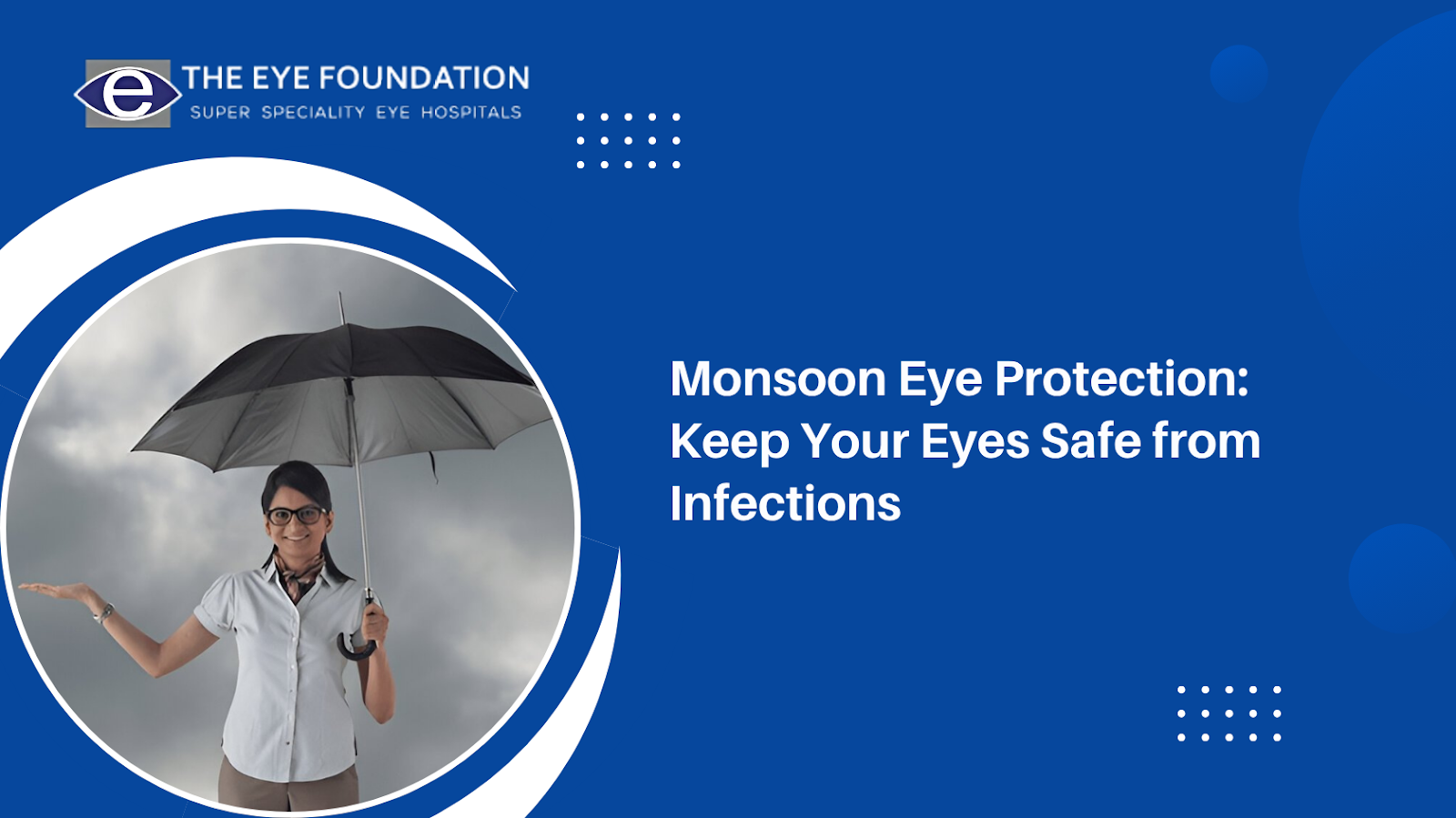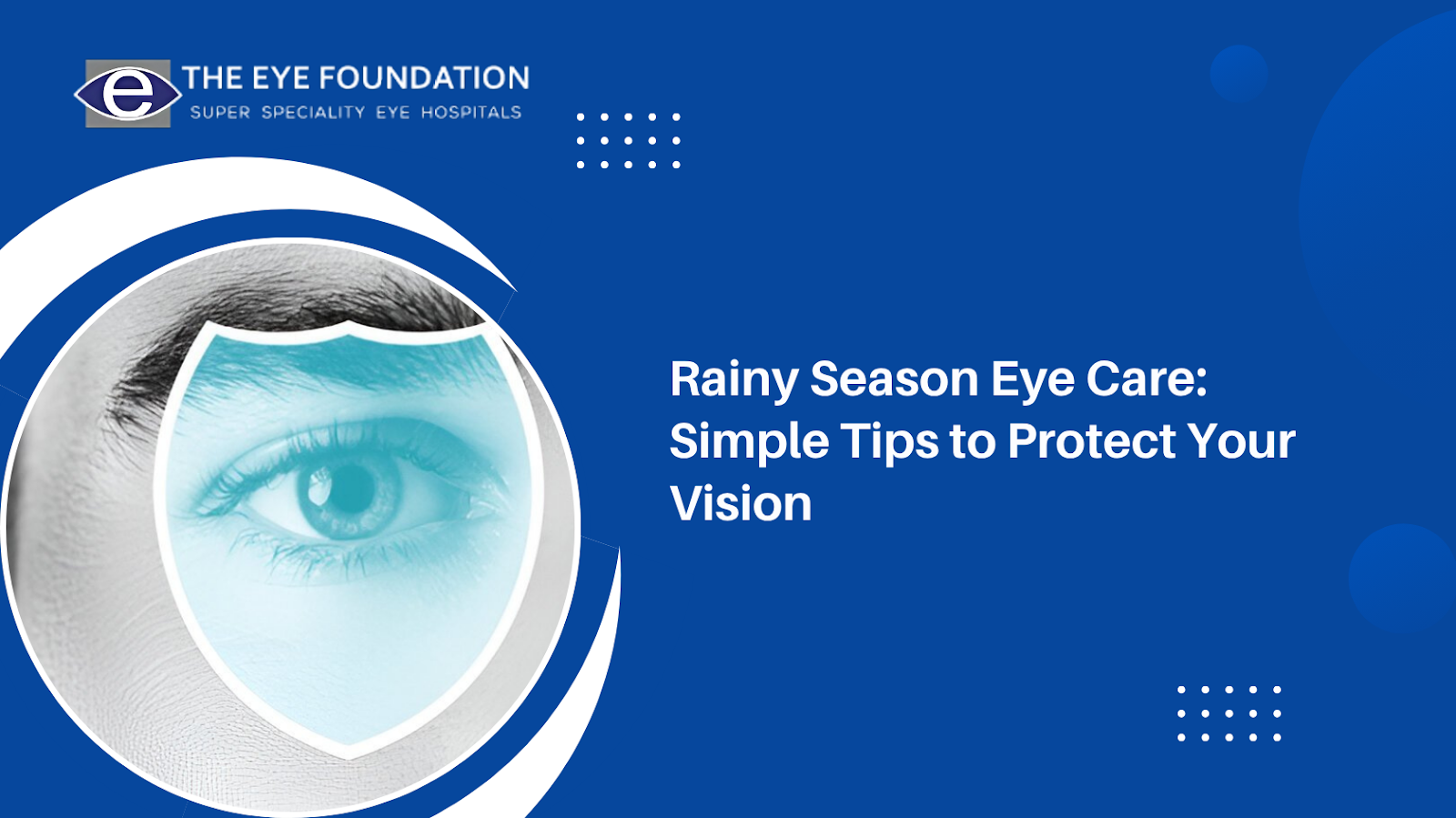Do you remember when your last comprehensive eye exam was?
For most people, the response is, "a few years ago," or maybe "never." Although we make a point of seeing our regular physicians to check on our overall health, we often neglect our eye health until something does not seem right. Even when we realize something is wrong with our eyes, by the time we take action, it may have gone too far as it is often not from just one issue.
Having regular eye tests in Coimbatore can detect early signs of the most common vision problems like presbyopia, cataract, glaucoma, or other retinal concerns well before you have any symptoms that you are complaining about with your eyes. In this article, our ophthalmologists at The Eye Foundation, Coimbatore address how often your eyes should be checked based on your age, health conditions, and lifestyle.
Why Eye Health Check Ups Are Important
Your eyes are one of the most sensitive organs in your body. They play a role in how you see the world around you while also telling you about your overall health. A complete eye exam can uncover health issues such as:
- Diabetes or hypertension (through panoramic view of the eye with retinal blood vessel changes)
- Neurological disorders (through appearance changes of the optic nerve)
- Early signs of glaucoma or macular degeneration/play structure changes
Even if your eye test shows 6/6 vision, having regular eye health appointments means we can make ensure your eyes stay as healthy as possible. In Coimbatore, with the advent of technology and increased exposure to screens and strain from computers, physicians highly recommend preventative testing, especially for professionals working long hours on computers or using a mobile device.
- For Children and Teens (0 to 18 years)
- Good vision is pivotal to your child's learning and developing stage.
- - Pediatric ophthalmologists recommend:
- For newborns: one eye test to check for congenital eye problems, at least once after birth.
- Ages 3–5: at least one complete eye exam prior to beginning school.
- School-aged children (6-18 years): tests every 1-2 years, sooner if the child has headaches, blurry vision, or trouble reading.
Detecting lazy eye (amblyopia), refractive errors, etc. early on will minimize the chances of vision issues, potentially lifelong. If you research 'child eye test Coimbatore', check out The Eye Foundation to book a pediatric appointment at one of the top eye hospitals in Coimbatore for pediatric eye tests.
For Older Adults (19-40 years)
Most adults 19-40 years will often take their vision for granted—if you see clearly everything must be okay. Your eyes can change slowly and quiet.
You should have an eye test every 2 years, sooner if you:
- Work long hours in front of a screen.
- Experience dry eyes, blurry vision or strain in your eyes.
- Wear contacts or glasses.
- Have an immediate family history of eye disease.
During your eye test, an optometrist or ophthalmologist will take you through tests for visual acuity, eye pressure and retinal health. Routine tests are easier than ever in Coimbatore, with a modern hospital, most appointments take place the same day with advanced diagnostic equipment for precision.
For Older Adults (40+ years)
After 40 year of age you become significantly more likely to have an eye disease.You might begin to notice the following changes:
- Difficulty focusing on near objects(presbyopia)
- Increased light requirements to read comfortably
- Having halos around lights at night or slightly diminished night vision
Once you reach 40, doctors highly recommend that you have a comprehensive eye test "every year" to identify:
- Glaucoma, typically having no symptoms until severe.
- Cataract, which clouds the lens of the eye and impacts clarity.
- Diabetic retinopathy, the result of high blood sugar damaging the eye.
- Age-related macular degeneration (AMD) which impacts central vision.
Within The Eye Foundation, Coimbatore, we conduct these tests with advanced instruments, including OCT (Optical Coherence Tomography) and non-invasive retinal scans to determine changes at the sub-microscopical level, and detect these changes early on.
For Patients with Medical Conditions
Certain medical conditions can make you susceptible to eye complications.
- Diabetes: Annual dilated eye exams make it easy to detect diabetic retinopathy quickly.
- Hypertension: Increased blood pressure can result in damage to the blood vessels in the retina at the back of the eye.
- Thyroid conditions: may affect you by bulging your eyes, or causing double vision.
- Autoimmune diseases: can cause inflammation in the eye and around the eye area.
If any of the above conditions exist, your ophthalmologist will typically reccommend more frequent eye examinations every 6 to 12 months. Coimbatore residents with chronic medical conditions can take advantage of close monitoring through trusted improving centres such as The Eye Foundation.
For the Digital Workforce & Students
Computer Vision Syndrome (CVS) or digital eye strain has become incredibly common given the current digital phenomenon.Signs and symptoms:
- Watery or burning eyes.
- Headaches.
- Double or blurred vision.
- Neck or shoulder pain.
If you are on screens more than 6-8 hours a day, schedule an eye test in Coimbatore at least once a year. Ophthalmologist can prescribe blue-light-blocking lenses, ergonomic recommendations, and lifestyle changes to protect your eyes.
Family History of Eye Disease.
If your parents or grandparents had glaucoma, macular degeneration, or severe refractive error, how at a higher risk . Preventative eye tests can identify hereditary problems early and help maintain your sight long term.
Ophthalmologists in Coimbatore recommend seeing someone for an eye check if you have a family history of these conditions, even if you have no symptoms.
The bottom line is that prevention is better than treatment.
Your vision changes gradually and in some cases, without your knowledge. By the time you notice, the problems can be advanced.
Regular eye tests are for all, even if you do not need glasses.
How often should you go?
- 1-2 every years if you are under 40 and healthy.
- Once a year after 40.
- 6-12 months ifyou have diabetes, high blood pressure or a family history of eye disease.
In short, your eyes deserve the same attention as your heart, skin, etc. Early detection saves sight.
Make an appointment for an eye test in Coimbatore.
At The Eye Foundation, Coimbatore, our specialists use advanced diagnostic tools and patient-centered eye care principles to help ensure your eyes are healthy. Whether you need a routine check-up, a vision screening for your child or a diabetic eye examination, each of our specialists will be there to help you through the process.
The Eye Foundation, Coimbatore
Your trusted venue for advanced Eye Tests in Coimbatore.
Book your eye appointment with us now and take the first step towards better eye health.
Please visit The Eye Foundation website or call us to schedule an appointment for your eye test.





